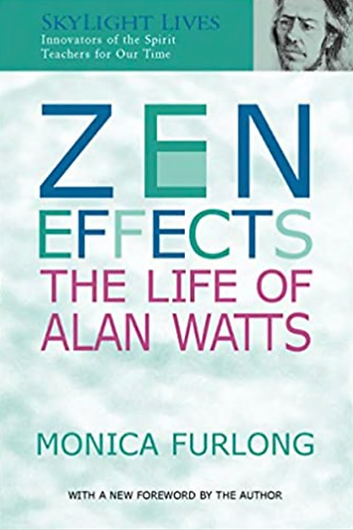
books / links
A surprisingly accessible read, full of practical tips. Outlines the extensive influence that the vagal and sympathetic systems have on mood, emotions and social interaction.
Accessing the Healing Power of the Vagus Nerve: Self-Help Exercises for Anxiety, Depression, Trauma, and Autism.
by Stanley Rosenberg
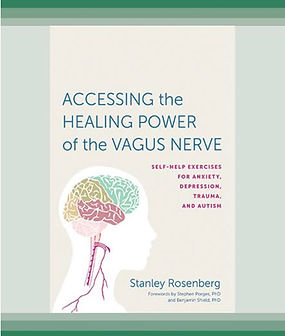

YouTube
Doug’s Dharma - An excellent range of bitesized Buddhism-related talks.
Ikigai: The Japanese secret to a long and happy life
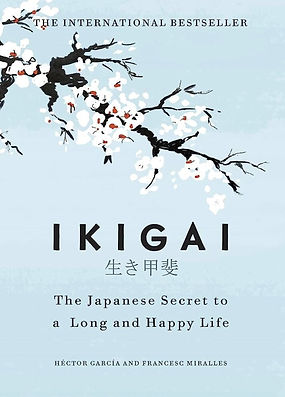
A beautiful simple read that outlines simple guidelines for a healthy mind and body life, giving specific case studies.
The book invites the reader to consider their own life path. As a Westerner, it contradicts many of my preconceptions about diet, exercise and socialisation.

Still reading this, but enjoying it so far. Typically, just when I was getting stuck it has opened my eyes to unexpected levels of the Precepts.
‘Being Upright takes us beyond the conventional interpretation of ethical precepts to the ultimate meaning that informs them. Reb Anderson first introduces us to the fundamental ideas of Zen Buddhist practice.
Who was Shakyamuni Buddha and what was his central teaching? What does it mean to be a bodhisattva and take the bodhisattva vow? Why should we confess and acknowledge our ancient twisted karma? What is the significance of taking refuge in Buddha, dharma, and sangha? The author explores the ten basic precepts, including not killing, not stealing, not lying, not misusing sexuality, and not using intoxicants. A gifted storyteller, Anderson takes us to the heart of situations, where moral judgments are not easy and we do not have all the answers.’ (Amazon)
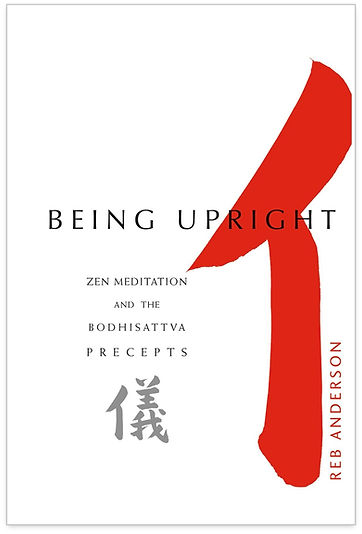
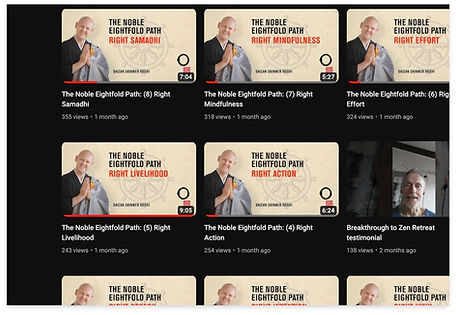
Still reading this, but enjoying it so far. Typically, just when I was getting stuck it has opened my eyes to unexpected levels of the Precepts.
‘Being Upright takes us beyond the conventional interpretation of ethical precepts to the ultimate meaning that informs them. Reb Anderson first introduces us to the fundamental ideas of Zen Buddhist practice.
Who was Shakyamuni Buddha and what was his central teaching? What does it mean to be a bodhisattva and take the bodhisattva vow? Why should we confess and acknowledge our ancient twisted karma? What is the significance of taking refuge in Buddha, dharma, and sangha? The author explores the ten basic precepts, including not killing, not stealing, not lying, not misusing sexuality, and not using intoxicants. A gifted storyteller, Anderson takes us to the heart of situations, where moral judgments are not easy and we do not have all the answers.’ (Amazon)
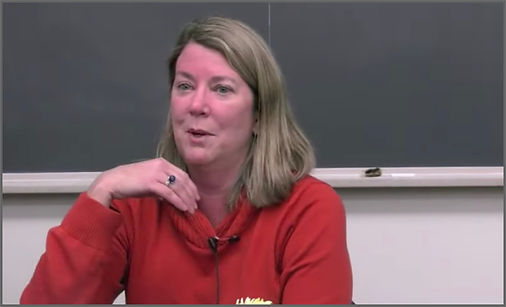
… a good watch
Zen Master Bon Yeon, guiding teacher of the Cambridge Zen Center, speaks at Boston University
"Zen means to climb INTO your life, not separate yourself from it. Zen has a reputation for being esoteric because it seems to be weird but it's not. All zen is doing is pointing to the most basic things. When you're doing something just do it! There's really nothing weird about zen. It simply points to the truth. Be present with what is happening.”
Wabi-sabi: For Artists, Designers, Poets & Philosophers by Leonard Koren
A lovely gentle read that explains the philosophy of Wabi Sabi and its relation to Western ideals of Modenism. “Wabi-Sabi is a beauty of things imperfect, impermanent and incomplete. It is a beauty of things modest and humble.”
I've lent this book a few times over the years and never got it back!

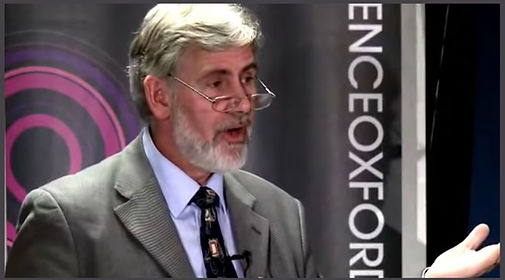
An excellent talk on Mindfulness at Science Oxford Live March 2012 by Professor Mark Williams from Oxford University.
https://www.youtube.com/watch?v=wAy_3Ssyqqg
The latest book by Zen Monk Mark Westmoquette.
In this book, Mark speaks from a place of profound personal experience. Through what may seem an unusual or even counter-intuitive approach, he stresses that by bringing awareness and kindness to difficult life events, much broader and more inclusive shifts can occur in our relationship to these. The only way we can grow is by facing pain, acknowledging how we feel and how we’ve reacted, and making an intention or commitment to end this repeating pattern of suffering.
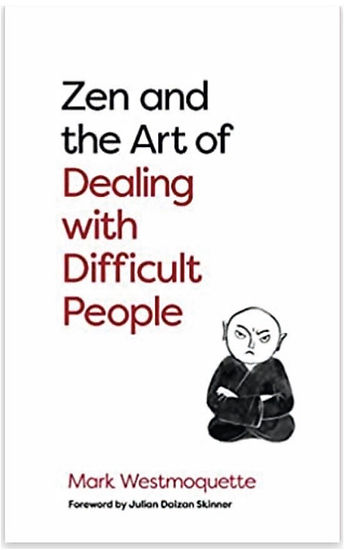
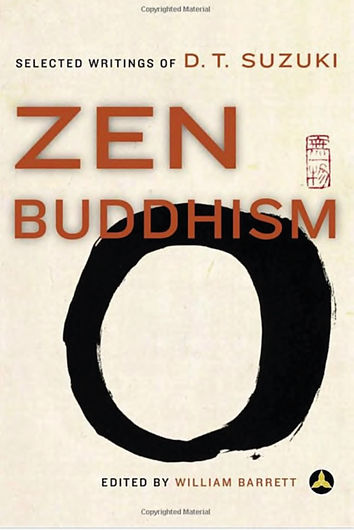
Zen Buddhism: Selected Writings of D.T. Suzuki
Read this years ago. Most of it went over my head at the time. A huge influence on the likes of John Cage, Ad Reinhardt and Agnes Martin. This along with Eugen Herrigel's Zen and the Art of Archery got me started on the Buddhist trail.
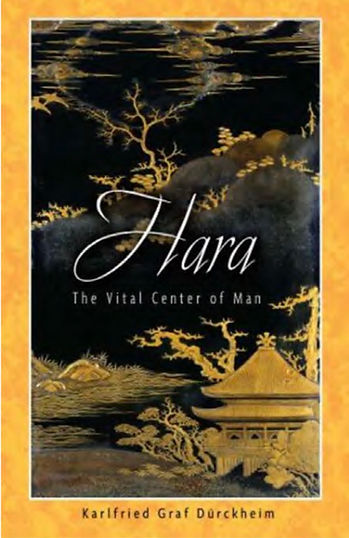
‘Hara’ by Karlfried Graf Dürckheim discusses how the physical and psychological centres of the body are one and the same.
According to Zen masters, by correcting posture and breathing to balance this centre, one can cultivate inner tranquillity and balance: the state called Hara. By leaving behind the ‘chest out - belly in’ posture and attitude of the West and adopting the belly-centered posture and attitude of Hara, individuals can live a calm, grounded, and more balanced life.
The first book I ever read on Zen
A very gentle, easy read that lit the spark. Eugen Herringel’s six year journey to learn archery. Not a ‘how-to’ guide but a guide to Zen principles.
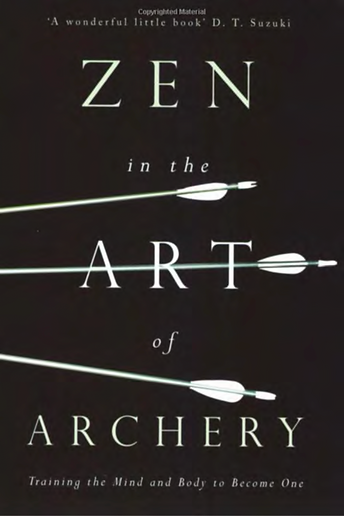
The first and only full-length biography of one of the most charismatic spiritual innovators of the twentieth century.
Through his widely popular books and lectures, Alan Watts (1915-1973) did more to introduce Eastern philosophy and religion to Western minds than any figure before or since. Watts touched the lives of many. He was a renegade Zen teacher, an Anglican priest, a lecturer, an academic, an entertainer, a leader of the San Francisco renaissance, and the author of more than thirty books, including The Way of Zen, Psychotherapy East and West and The Spirit of Zen. Monica Furlong followed Watts's travels from his birthplace in England to the San Francisco Bay Area where he ultimately settled, conducting indepth interviews with his family, colleagues, and intimate friends, to provide an analysis of the intellectual, cultural, and deeply personal influences behind this truly extraordinary life.
